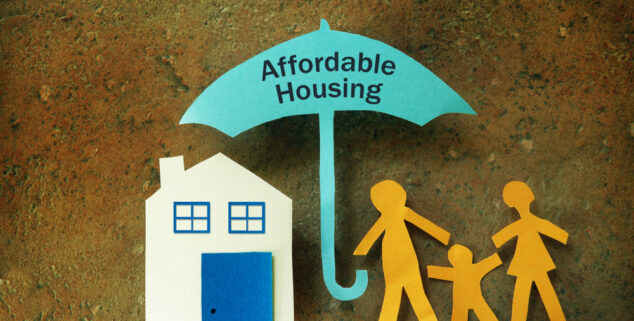Expert Advice on Achieving Affordable Homeownership and Financial Stability
Expert Advice on Achieving Affordable Homeownership and Financial Stability
Blog Article
Budget Friendly Homeownership Options for First-Time Homebuyers
As the real estate market continues to advance, new buyers face one-of-a-kind challenges in securing cost effective homeownership alternatives. These initiatives not only facilitate homeownership yet also foster area security and economic growth.
Government Aid Programs
Entitlement program programs play a critical function in making homeownership obtainable for lots of individuals and families. These programs aim to relieve the monetary concern connected with acquiring a home, particularly for newbie purchasers. By providing financial assistance, gives, and tax obligation incentives, federal government efforts aid bridge the gap between increasing housing prices and the acquiring power of possible home owners.
Different programs are readily available at the government, state, and neighborhood levels. The Federal Housing Management (FHA) offers insurance policy on fundings, enabling loan providers to use extra beneficial terms, such as lower down repayments and decreased interest rates. Additionally, state and local governments frequently have their own initiatives, which may include deposit aid programs, buyer education programs, and beneficial mortgage terms.
These programs are designed to resolve the one-of-a-kind obstacles faced by low- to moderate-income families, consisting of restricted financial savings and credit rating. By fostering a setting where homeownership is a lot more available, government assistance programs not just support individual aspirations but likewise contribute to area stability and economic development. Understanding and using these resources can dramatically boost the leads of successful homeownership.
Low-Down-Payment Mortgages
For lots of aspiring home owners, low-down-payment mortgages present a viable path to homeownership, particularly in today's tough housing market. These home loan options generally call for down payments ranging from 3% to 5%, making it less complicated for first-time customers to enter the marketplace without the worry of saving for a substantial deposit.
Various loan providers supply low-down-payment programs, including traditional fundings backed by Fannie Mae and Freddie Mac, as well as government-backed choices like FHA finances. These mortgages are developed to suit people with limited financial savings while still providing affordable rate of interest. Notably, they permit buyers to keep even more cash for other necessary expenditures, such as relocating costs, home assessments, and potential renovations.
Nevertheless, prospective home owners must be conscious of the compromises related to low-down-payment home mortgages. A smaller sized down payment may lead to higher regular monthly payments and the requirement of personal home loan insurance policy (PMI), which shields lending institutions in instance of default. Therefore, it is essential for newbie purchasers to conduct complete research and talk to mortgage specialists, guaranteeing they pick a low-down-payment alternative that aligns with their long-term financial goals. Affordable Homeownership.
First-Time Homebuyer Grants
Lots of new buyers locate that gives can considerably reduce the monetary problem of purchasing a home, enhancing low-down-payment mortgage choices. These grants, often supplied by state and non-profit companies or local governments, supply financial aid that does not require settlement, making them an appealing alternative for those getting in the housing market.
Eligibility for new buyer gives generally relies on revenue, creditworthiness, and the acquisition rate of the home. Numerous programs are developed to help reduced- to moderate-income family members, guaranteeing that assistance gets to those that need it most. The application procedure usually includes documentation of financial standing, buyer education training courses, and often also a commitment to remain in the home for a particular duration.
The amount helpful differs extensively, with some gives offering numerous thousand bucks to help cover shutting costs or deposits. Looking into offered gives in your area is necessary, as programs regularly transform and might have details demands. By leveraging these funds, newbie buyers can make homeownership extra accessible, eventually achieving their imagine possessing a home while minimizing the preliminary economic stress.
Cutting-edge Community Campaigns
Innovative area initiatives are playing a vital function in broadening affordable homeownership options for locals. These campaigns typically entail joint efforts in between local federal governments, charitable organizations, and economic sector stakeholders to produce sustainable real estate solutions customized to area requirements.
One noteworthy technique is the facility of community land depends on (CLTs), which permit residents check my reference to purchase homes while the land continues to be possessed by the trust fund. This model helps preserve cost over time and protects against speculative cost boosts. In addition, CLTs frequently give educational sources and assistance services to empower first-time property buyers.
Another reliable effort is the advancement of mixed-income housing tasks, which blend budget friendly devices with market-rate homes. This technique fosters comprehensive areas and reduces the preconception frequently associated with low-income housing. In addition, neighborhood governments are increasingly supporting zoning reforms to facilitate the building of accessory dwelling units (ADUs), which can give added rental earnings for property owners while raising housing accessibility.

Tips for Budgeting and Saving

Following, establish a devoted financial savings account especially for your future home purchase. Purpose to save a percent of your income consistently, preferably 20% or even more, to develop a considerable down payment. Make use of automation devices, such as straight deposit or automated transfers, to make conserving less complicated and extra regular.
In addition, consider taking on the 50/30/20 guideline: allot 50% of your income view it to requirements, 30% to desires, and 20% to financial savings and financial debt repayment - Affordable Homeownership. This method advertises well balanced economic health and wellness

Verdict
In recap, budget-friendly homeownership choices for novice property buyers incorporate numerous resources such as federal government help programs, low-down-payment mortgages, and gives. By leveraging these economic devices, people can navigate the complexities of homeownership, inevitably contributing to a more fair housing landscape.
As the housing market proceeds to progress, novice property buyers face distinct obstacles in securing budget this hyperlink friendly homeownership choices. By promoting an environment where homeownership is extra accessible, government assistance programs not just support individual ambitions but likewise contribute to area stability and financial growth. By leveraging these monetary resources, novice buyers can make homeownership a lot more available, eventually achieving their dream of owning a home while minimizing the first financial strain.
In recap, inexpensive homeownership options for newbie property buyers incorporate numerous resources such as federal government aid programs, low-down-payment home mortgages, and gives. By leveraging these financial tools, individuals can browse the intricacies of homeownership, eventually adding to a more equitable housing landscape.
Report this page